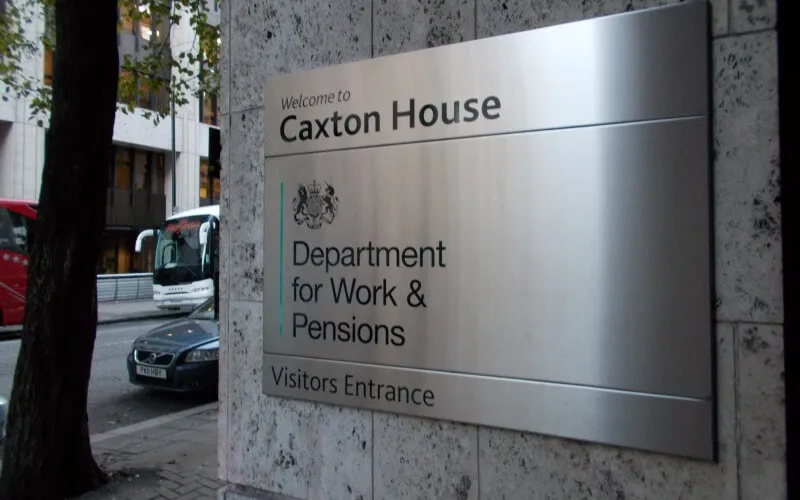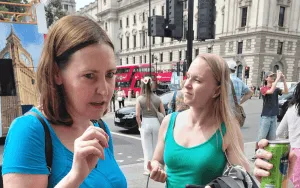The Department for Work and Pensions (DWP) has admitted making no attempt to research why spending on out-of-work disability benefits has risen significantly in recent years, despite planning “horrendously dangerous” cuts after the next election.
Earlier this month, work and pensions secretary Mel Stride revealed proposals that would make it significantly harder for many disabled people to secure the highest rate of support and avoid being forced to carry out work-related activity.
Disabled activists raised serious concerns about what they said were “cynical” and “horrendously dangerous” attempts to make new government cuts by tightening the work capability assessment (WCA).
A DWP press release announcing the proposals highlighted a real-terms increase in spending on “incapacity benefits” from £15.9 billion in 2013-14 to £25.9 billion this year, while Stride told MPs that the proportion of disabled people “being given the highest level of award and deemed to have no work-related requirements at all” had risen from 21 per cent in 2011 to 65 per cent last year.
He said the situation was “excluding significant numbers of people from receiving employment support” and was “holding back the labour market and the economy”.
But he did not tell MPs that the early 2010s saw the beginning of years of activism and research that exposed the links between the WCA and hundreds, and probably thousands, of deaths of claimants.
That activism eventually forced DWP ministers to ease the harshness of the assessment and make it easier to qualify for the employment and support allowance (ESA) support group and avoid work-related conditions, although the test continued to be linked to serious harm and multiple deaths.
A consultation on the latest proposed changes – which would not be introduced until after the next general election – ends on 30 October*.
Some researchers and campaigners believe a key reason for the increased number of people receiving out-of-work disability benefits – and non-income-related disability benefits such as personal independence payment – in the last three years is the impact of the pandemic.
But Stride did not seem to be basing his proposals for a stricter WCA on any DWP research, instead appearing to focus on the need to cut government spending, despite the likely impact on those who would lose support.
Following his comments, Disability News Service (DNS) submitted a freedom of information request to DWP, aimed at discovering what research the department had carried out in the last three years into the reasons for the sharp rise in the number of people needing to rely on ESA and the disability element of the new universal credit.
But in a response to that request, DWP has now admitted to DNS that it “does not have specific research on this matter”, even though the department plans to make it more difficult for disabled people to claim support if they cannot work for health or impairment-related reasons.
DWP said that it “draws” instead on “the wealth of data” produced by the Office for National Statistics, the Office for Budget Responsibility (OBR) and others.
It highlighted OBR’s Fiscal Risks and Sustainability report, which was published in July and includes a lengthy chapter on “inactivity and health”.
The OBR chapter includes detailed analysis of data relating to people reporting long Covid symptoms, NHS waiting-lists, the rise in caseloads for incapacity benefits and personal independence payment, rates of benefit sanctions, and the rise in health-related inactivity.
But the chapter repeatedly makes clear that the analysis can draw no firm conclusions about why spending on ESA and disability- and health-related universal credit has risen so sharply in the last few years.
It uses phrases such as “would suggest”, “looks unlikely”, “it is possible”, “could plausibly have played a role”, “may have”, “might have”, and “there appears to be limited evidence” in its analysis.
But the report is clear that ONS figures show the number of people “citing long-term sickness as their main reason for being inactive has proven to be the most significant and persistent legacy of the pandemic, rising steadily over the past three years and by 440,000 by early 2023”.
It is also clear that “the increase in inactivity due to long-term sickness since 2019 has been concentrated among those who previously worked in lower-paid occupations”.
Ellen Clifford, author of The War on Disabled People and a member of the national steering group of Disabled People Against Cuts, said: “The rhetoric amplified by the Tory government has absolutely no place within any evidence-based system of policymaking.
“The amplification by the right wing over the so-called rise in sickness benefits is an ideological distraction.
“The government thinks they can get away without evidence base or economically-logical arguments. We have to prove them wrong.”
DWP refused this week to address concerns that it was planning potentially dangerous cuts to spending on incapacity benefits and a tightening of the WCA without undertaking research to discover why disabled people have been claiming those benefits in larger numbers, and whether it was safe to introduce its cuts and reforms.
But a DWP spokesperson said in a statement: “We know that one in five people on an incapacity-related benefit would like to work at some point in the future, but fewer than one in a hundred move into employment every month.
“That is why we are consulting on reforms to work capability assessments and will take the time to ensure any subsequent changes are implemented safely.”
*Any organisation that needs help responding to the consultation can access free, confidential email support from the independent benefits advice website Benefits and Work
A note from the editor:
Please consider making a voluntary financial contribution to support the work of DNS and allow it to continue producing independent, carefully-researched news stories that focus on the lives and rights of disabled people and their user-led organisations.
Please do not contribute if you cannot afford to do so, and please note that DNS is not a charity. It is run and owned by disabled journalist John Pring and has been from its launch in April 2009.
Thank you for anything you can do to support the work of DNS…

 Disabled MP who quit government over benefit cuts tells DNS: ‘The consequences will be devastating’
Disabled MP who quit government over benefit cuts tells DNS: ‘The consequences will be devastating’ Minister finally admits that working-age benefits spending is stable, despite months of ‘spiralling’ claims
Minister finally admits that working-age benefits spending is stable, despite months of ‘spiralling’ claims Timms says cuts must go ahead, despite being reminded of risk that disabled claimants could die
Timms says cuts must go ahead, despite being reminded of risk that disabled claimants could die